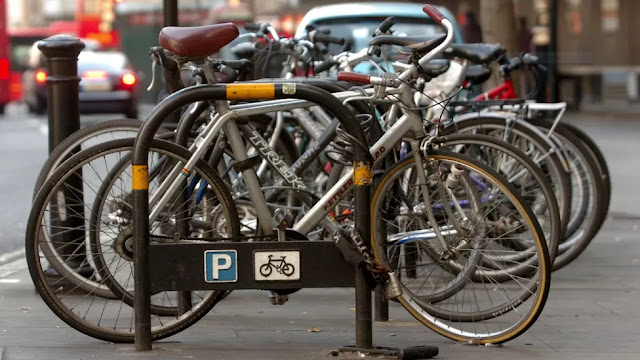Perhaps it should surprise no one that in New York and other American cities, bicycle theft isn't a high-priority crime for police departments. If your bike is stolen, you probably won't see it again and the cops will tell you there's "nothing" they can do. And they might give you a lecture in which they tell you to do the things you'd already been doing.
Depressingly, that is the case in other cities throughout the world. A case in point is London. According to a report the BBC cited, about 18,000 thefts were recorded in the city between November 2021 and October 2022. Only 206 resulted in a charge or caution, the latter of which is the British justice system's of saying, "You've been caught; don't do it again."
The BBC news item offered an interesting analysis of the situation. According to experts, the report goes, many stolen bikes end up on auction sites and those sites should be doing more to stop it. The report also calls bike theft an "entry level crime," that often leads to bigger crimes. I wonder whether that separates London bike theft from its counterparts in American cities, which tends to be a crime of opportunity or done by professional thieves.
But aside from losing bikes and contributing to overall lawlessness, bike theft has another undesirable effect. According to Tom Bogdanowicz, a senior policy officer at the London Cycling Campaign, about a quarter of all bike theft victims never cycle again. This, he said, is "not good for the city" because "if there's less cycling, then there are more emissions from cars, more congestion and people's health isn't improving." Moreover, he said that while building bicycle infrastructure encourages cycling, if people have their bikes stolen, then you lose customers."
Then, of course, motorists will complain that "their" traffic lanes were "taken away" for bike lanes that "nobody uses."
Thus, not taking bike theft seriously adversely affects public health and exacerbates the already-adversarial relationship that too often exists between motorists and cyclists. None of that can be good for anybody, I think.





